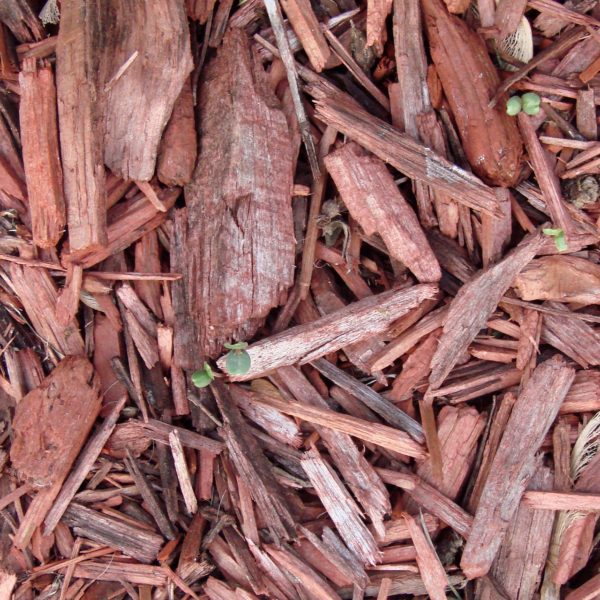To remove termites from mulch, apply heat treatment or use termite control products. Additionally, removing and replacing infested mulch can help eliminate termites.
Termites in mulch can cause damage to nearby structures and plants. Thus, it is essential to take immediate action to prevent infestations. We will explore effective methods to remove termites from mulch, providing you with solutions to keep your garden and property termite-free.
Follow these steps to protect your outdoor space and maintain a healthy environment for your plants and structures. By implementing these measures, you can successfully remove termites from mulch and prevent future infestations.

Credit: arceneauxpest.com
Understanding The Threat Of Termites In Mulch
The threat of termites in mulch is a significant concern for gardens and landscapes. Mulch serves as a potential habitat for termites, allowing them to thrive and potentially spread to nearby structures. Recognizing the signs of termite presence in mulch is crucial for early detection and effective removal.
Termites are attracted to mulch due to its moisture-retaining properties and organic composition. Mulch provides termites with a comfortable environment, as it offers protection from extreme weather conditions and predators. To identify termite presence in mulch, look for signs such as discarded wings, mud tubes, or damaged wood nearby.
Taking immediate action to remove termites from mulch is essential. Start by eliminating any existing termite infestation, using targeted treatments or seeking professional help if needed. Regularly inspect and maintain mulch to prevent future termite infestations. Consider alternatives to traditional mulch, such as non-wood materials, to reduce the risk of attracting termites.
How to Remove Termites from Mulch : Step by Step Guide
Effective Methods For Removing Termites From Mulch
In the battle against termites in mulch, there are several effective methods to consider. One option is using essential oils and natural repellents that are known to repel termites. Another natural remedy is the use of beneficial nematodes, which are microscopic worms that feed on termites and their larvae. Diatomaceous earth can also be applied to the mulch, as it is a natural substance that damages the exoskeleton of termites, leading to their eventual demise.
For those who prefer chemical treatments, there are a variety of options available. Insecticides and termiticides can be applied to control termite infestations, along with soil treatment options that create a barrier around the mulch. Another option is using controlled-release pesticides, which slowly release chemicals to protect against termites over time.
If the termite problem persists, it may be necessary to seek the help of professional pest control services. Hiring certified exterminators can provide expertise and ensure proper removal of termites from the mulch. It is important to weigh the pros and cons of professional termite control and consider factors such as cost considerations and warranties.
Preventive Measures To Avoid Termite Infestation In Mulch
Preventing termite infestation in mulch is crucial to maintain a healthy garden. One preventive measure is to choose termite-resistant mulch materials. Cedar and cypress mulch are excellent options as they naturally repel termites. Rubber mulch is another alternative that is less attractive to termites. Gravel and rock mulch can also be effective in deterring termites.
Implementing proper mulching techniques is essential. Avoid excessive mulch depth, as it creates a favorable environment for termites. It is important to maintain a gap between the mulch and structures to prevent termites from accessing your home. Regularly inspecting and replacing mulch is necessary to prevent termite infestation.
Additionally, adopting landscape management practices can aid in termite prevention. Removing wood debris and yard waste eliminates potential termite habitats. Trim tree branches and keep foliage away from structures to limit termite access. Monitoring moisture levels in the garden also helps to discourage termite activity.
| Choosing Termite-Resistant Mulch Materials | Cedar and cypress mulch |
| Rubber mulch | |
| Gravel and rock alternatives |
Frequently Asked Questions For How To Remove Termites From Mulch
How Do I Kill Termites In My Mulch?
To kill termites in your mulch, follow these steps: 1. Remove the infested mulch and dispose of it properly. 2. Treat the area with a termiticide according to the manufacturer’s instructions. 3. Replace the mulch with a termite-resistant alternative like rubber mulch or gravel.
4. Regularly inspect the area for signs of termite activity and take action if needed.
Should I Worry About Termites In Mulch?
Termites in mulch should be a concern due to their ability to attract and harbor termites.
What Keeps Termites Out Of Mulch?
To keep termites out of mulch, use a termite-resistant mulch or treat the mulch with termite repellent.
Do Termites Come Out Of Mulch?
Termites may come out of mulch, as it provides a favorable environment for them.
Conclusion
Removing termites from mulch is a crucial step in protecting your property from these destructive pests. By following the correct preventive measures, such as keeping the mulch dry and well-aerated, regularly inspecting for termite activity, and promptly addressing any signs of infestation, you can effectively manage and eliminate termites from your mulch.
Additionally, incorporating termite-resistant mulch options, such as cypress or heartwood mulch, can provide an extra layer of protection against these pests. Remember to consult with pest control professionals for expert advice and treatment options, especially if you encounter a severe termite infestation.
With proper care and preventive measures, you can ensure a termite-free environment and safeguard the health and longevity of your garden or landscape. So, take action now and protect your property from these destructive pests.

